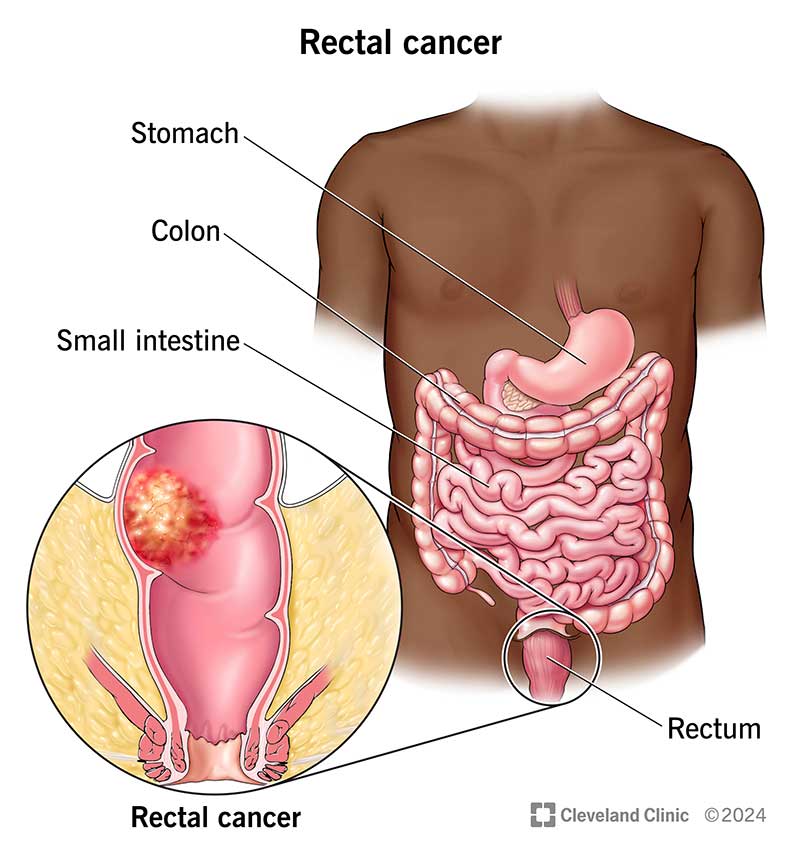Anal cancer (AC)

Anal Cancer (AC): Overview, Risk Factors, Symptoms, and Treatment
Anal cancer is a rare malignancy that develops in the tissues of the anus, often linked to human papillomavirus (HPV) infection. While uncommon compared to colorectal cancer, its incidence has been rising, particularly among women. Below is a detailed overview of anal cancer, including risk factors, symptoms, and treatment options.
Types of Anal Cancer
- The most common type (90% of cases), originating in the squamous cells lining the anal canal and margin[1][4].
- Develops in mucus-producing cells within the anal canal and is treated similarly to rectal cancer[1].
- A type of skin cancer affecting the area around the anus[1].
Malignant Melanoma:
- Rare but aggressive, originating in melanocytes near the anus[1].
Risk Factors for Anal Cancer
- HPV infection is implicated in over 93% of anal cancer cases, particularly high-risk strains like HPV16 and HPV18[3][5].
Immunosuppression:
- Conditions like HIV/AIDS or use of immunosuppressive medications increase susceptibility[3][4].
Other Cancers:
- A history of cervical, vaginal, or vulvar cancer raises the risk due to shared HPV-related factors[3][4].
- Smoking and having multiple sexual partners elevate risk by weakening immune defenses against HPV[3][4].
Age and Gender:
- Most cases occur in individuals over 50 years old, with higher rates observed in women[3][4].
Symptoms of Anal Cancer
Common symptoms include:
- Bleeding from the anus or rectum (often mistaken for hemorrhoids)[1][4].
- Pain or discomfort around the anus[1].
- A lump or mass near the anus[1].
- Itching or discharge from the anus[1].
- Difficulty controlling bowel movements (fecal incontinence)[1].
Early symptoms can overlap with benign conditions like piles or fissures, making timely medical evaluation critical.
Diagnosis
- Physical examination and anoscopy to assess visible lesions.
- Imaging studies such as MRI, CT scans, or PET scans for staging[5].
- Biopsy to confirm malignancy and determine histological type[5].
Treatment Options
Chemoradiation (Mainstay):
- Combines chemotherapy (e.g., mitomycin and 5-fluorouracil) with radiotherapy to kill cancer cells while preserving anal function[2][5].
Surgery:
- Reserved for cases where chemoradiation fails or when cancer recurs. Options include local excision for small tumors or abdominoperineal resection with colostomy for advanced cases[2][5].
Emerging Therapies:
- Immunotherapies targeting HPV oncoproteins and therapeutic vaccines are under investigation to improve outcomes[5].
Prevention Strategies
HPV Vaccination:
- Vaccines like Gardasil protect against high-risk HPV strains linked to anal cancer[3][5].
Safe Sexual Practices:
- Limiting sexual partners and using condoms can reduce HPV transmission risk[3].
Smoking Cessation:
Conclusion
Anal cancer is a rare but increasingly prevalent malignancy strongly associated with HPV infection. Early diagnosis through symptom recognition and regular screening in high-risk groups improves treatment outcomes. Preventive measures such as HPV vaccination and lifestyle modifications are crucial for reducing incidence rates.
Consult with Our Team of Experts Now!
At DrStemCellsThailand (DRSCT)‘s Anti-Aging and Regenerative Medicine Center of Thailand, we emphasize comprehensive evaluations and personalized treatment plans of Cellular Therapy and Stem Cells for managing various health conditions. If you have questions about Anal cancer or would like more information on our services, consult with our experts today!
Consult with Our Team of Experts Now!
References
- Title: HPV Vaccination and Anal Cancer Prevention: A Systematic Review
DOI: 10.1016/j.vaccine.2023.03.004
Summary: Discusses the impact of HPV vaccination on preventing anal cancer, focusing on its effectiveness in reducing the incidence of high-risk HPV infections. - Title: Emerging Therapies for HPV-Related Cancers: A Review of Immunotherapeutic Approaches
DOI: 10.1038/s41591-022-01734-2
Summary: Explores novel immunotherapies targeting HPV oncoproteins, highlighting their potential in treating HPV-related cancers, including anal cancer. - Title: Risk Factors and Prevention Strategies for Anal Cancer: A Comprehensive Review
DOI: 10.3389/fpubh.2024.1008321
Summary: Reviews risk factors for anal cancer, including HPV infection and immunosuppression, and discusses prevention strategies such as vaccination and safe sexual practices.















